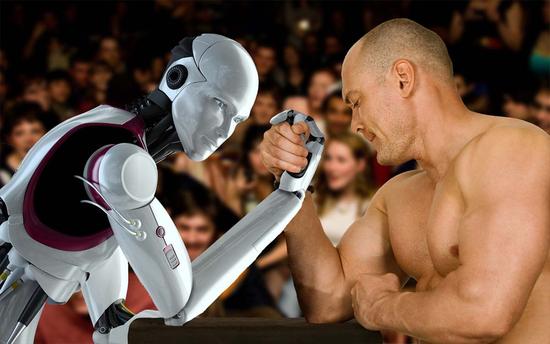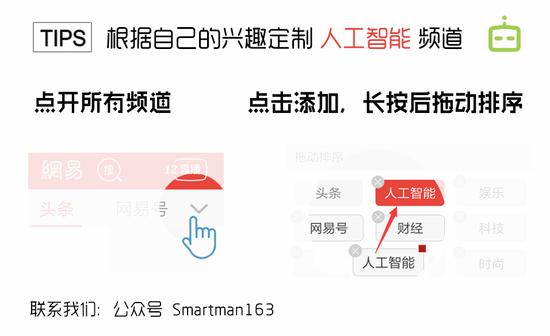(Original title: Technology magnates argue AI "threat theory" Who will win with Musk and Zuckerberg?)

Does the Western World depict humans and machines as two independent species similar to each other, puzzled and killed, is it the future? It is still unclear how the AI ​​will influence humans, but giants of giant technology companies have already completed the "squadron" between the optimistic and pessimistic factions. Since the AI ​​“threat theory†was thrown out, Tesla CEO Musk has been constantly challenged by the big names in the science and technology industry. This time, he is facing Facebook's fierce collision with Facebook hot EA Zuckerberg.
Eschatology vs Optimism
On July 25th, Zuckerberg said in a live broadcast that Musk’s AI "threat theory" was too passive and extremely irresponsible. He did not think the other party understood AI at all. Then, the following afternoon, Musk immediately responded to Tiwtter. Zuckerberg said that he had talked to Zuckerberg about AI. "Zacker's understanding of artificial intelligence is very limited."
Musk first throws AI "threat theory" in 2014. In a public interview at the Massachusetts Institute of Technology, Musk expressed his opinion on artificial intelligence. “I think we should be very vigilant about artificial intelligence. If you let me say what the biggest threat to humanity is now, I think it's artificial intelligence. undoubtedly".
In the same year, the physicist Stephen Hawking had spoken amazingly, saying that artificial intelligence has proven to be very useful in its early stages, but he is worried that "artificial intelligence may start on its own and resume at an accelerating rate. Designing oneself. While human beings are confined to the slow process of biological evolution, they will not be able to compete and will eventually be surpassed." Therefore, he believes that "completely developing artificial intelligence may lead to the destruction of humanity."
In April of this year, Amazon CEO Bezos had an open debate with MAS on the AI ​​"threat theory." Bezos believes, "Perhaps in the early days of development, artificial intelligence could enhance our ability to promote human civilization, which would make humans feel comfortable and ultimately rely on this technology."
There is no shortage of giants on the opposite side of Musk. In June 2016, Eric Schmidt, the executive chairman of Google’s parent company Alphabet, had publicly and strongly counterattacked Musk at a seminar in Stockholm, and stated that Musk’s AI “threat theory†was awkward. "If you think that artificial intelligence will destroy our race after surpassing humanity in IQ, then your sci-fi movie must have seen much more," said Schmidt.
Concerns about whether AI is back-hashing humans, Google CEO Pichchai is also holding a disapproval attitude, he believes that in the long run, AI will certainly improve the quality of human life.
In October last year, IBM Chairman and CEO Luo Ruilan wrote an article describing the biggest misunderstanding of machine learning technology in the outside world. She stated in the article that it is not enough to understand the science of machine intelligence as to whether or not future automation machines will backtrack and destroy human beings. She thinks that if you can participate in this, you will know that this is a misconception.
Market layout
On the one hand, the big debaters are on the one hand, while the other is the fierce layout of the artificial intelligence market. "Optimus" walked in front. Facebook has announced plans to establish "the world's best AI laboratory." Facebook has developed an AI-supported personal assistant M. Facebook's future AI development will likely include a regular upgrade of existing AI technology and allocate more resources to AI Labs. The lab appears to be in the form of a think-tank designed to address the biggest AI challenges in certain technology industries.
In recent years, Google has acquired 11 different AI companies, and part of the technology derived from these investments has been used to help improve Google's search capabilities. Google's $400 million acquisition of DeepMind, which is by far the highest amount of AI acquisitions, pushes DeepMind's technology to the limit.
Apple's most noteworthy AI acquisition took place in 2015 when Apple acquired Vocal IQ. The company's AI technology continues to promote Apple virtual assistant Siri improvement. In addition, after introducing advanced facial recognition technology in the latest iOS, Apple announced that it will focus on the development of this technology in the field of digital signage in the coming months.
With giants such as Google and IBM successively having open source AI platforms, NVIDIA and Intel severely attacked AI chips. The technical barriers to commercialization of AI have been greatly reduced, and AI will usher in commercialization climaxes. Smart home, driverless, fuzzy retrieval and other fields will take the lead in development. IBM and Google have a comprehensive layout in the base layer, technology layer, and application layer. IBM has transformed itself into a cognitive solutions and cloud platform company, and Watson will start the era of cognitive business.
As traditional chip companies, NVIDIA and Intel are facing the pressure of gradual saturation of PCs, mobile smart terminals and other markets, as well as the strong market prospects of the AI ​​market. They are committed to developing feasible AI hardware and have many attempts in the AI ​​framework and commercial applications.
Manufacturing at the core of national competition is also the battlefield of AI. From the "Industry 4.0" in Germany to the "Made in China 2025" in China, and the Trump administration's push for the return of the US manufacturing industry, the competition in the new round of manufacturing has quietly started. However, unlike before, the integration of artificial intelligence, cloud computing, and big data into manufacturing will become an important factor in this competition.
What to do next
In the talk about artificial intelligence "will replace humans," one of the four major international accounting firms, Deloitte and Kira Systems, joined forces to introduce artificial intelligence into accounting, taxation, auditing, etc., aiming to help employees "read the contract and The tedious work of other documents was liberated."
This controversial action has become a testament to the "Economist" 2014 survey: In the next 20 years, low-end manufacturing production, sales, accounting and other "low-tech but high cost" positions will gradually be Artificial intelligence replaced.
For humans, it is by no means good news. "The question is: What's next?" Bezos thinks, "Some artificial intelligence will be integrated into our civilization, but I'm also worried that Marsk warns that the future artificial intelligence revolution may indeed have exceeded some of ours. Control range".
Human fears come from unknown and uncontrollable. The author of "A Brief History of Humanity", Yuval Hellali, mentioned in a public speech that since the development of human wisdom, it has taken control of many things in the natural world, including how to fight natural disasters and control the fate of the biological world. Uncontrollable things always make human fears, such as death.
Microsoft founder Bill Gates had publicly expressed his concern about the over-intelligence of machines, saying that super-intelligent machines would threaten humanity and hoped that the public would be vigilant. Bill Gates expressed his misunderstanding to those who have no worries about smart machines. He believes that "machines can really help humans do a lot of work, but when machines become more intelligent, they will pose a threat to human existence." .
If “free consciousness is an illusion†is the first shot of the change of authority, then the most important logical starting point of humanism, “No one knows yourself better than you,†is also being dismantled on the mad expedition of technological development. In Hilary's view, in this century, "data literacy" is very likely to replace "liberalism" and become a "new religion" that humanity believes in.
In the outline of dataistics, when collecting large amounts of data, especially human biological data, combined with increasingly powerful computing power, external forces will know you better than “your heartâ€.
According to Western World, this is a more realistic future. However, for humans as a whole, it is hard to imagine where this kind of future will place human beings, compared to human beings who are unscrupulous in the “robot parkâ€. What is the impact of artificial intelligence as the crystallization of human wisdom? Only time can give an answer.
 燑br>
燑br>
USB Modem,Modem 4G,Wireless Modem,Cat4 Unlock Modem
Shenhzhen Tongheng Weichuang Technology Co., Ltd , https://www.thwclte.com